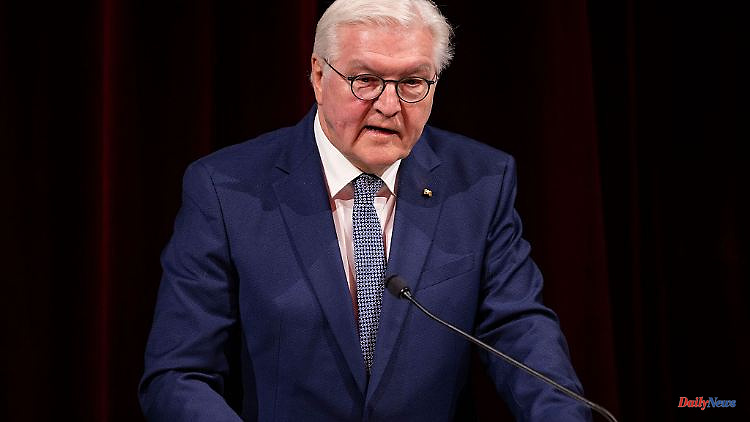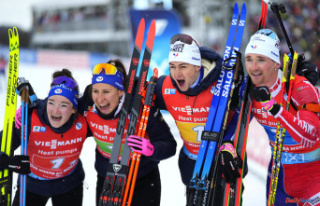When a head of state comes, things usually get serious. Frank-Walter Steinmeier, however, comes to his home country as Federal President. He quickly makes it clear how comfortable he feels - and jokes about the frugal Lipper.
Detmold (dpa / lnw) - The Federal President briefly and succinctly welcomes the guests in the Landestheater Detmold. "Tomorrow," calls Frank-Walter Steinmeier into the auditorium with a firm voice as he moves in with his wife Elke Büdenbender and Prime Minister Hendrik Wüst (CDU). The distinguished guest from Berlin has come to give a speech. It's about 900 years of Lippe and 50 years of the Lippe district. The guests call back "morning" in many voices. The Lippers are frugal, and not just with words, as Steinmeier and Wüst emphasize later.
Steinmeier congratulated the smallest part of North Rhine-Westphalia on Sunday. Prime Minister Hendrik Wüst (CDU), the President of the North Rhine-Westphalia State Parliament, André Kuper (CDU) and the District Administrator of the Lippe district, Axel Lehmann (SPD), had invited.
In his ceremonial speech, the head of state described what makes the people in the region special: "Lipper skepticism about any form of enthusiasm, deep aversion to bragging or even boasting, a good deal of composure, that's how the people are here between the Teutoburg Forest and the Weserbergland," said the Federal President and then added: "And yes, dear Prime Minister, this is my home, I feel at home here. And that's a good thing." Steinmeier was born in Detmold in 1956 and went to high school in Blomberg, around 20 kilometers away.
"As expected, the Lippe saved the moderation. That's why I'm announcing my speech myself," said Steinmeier after he went on stage. Loud laughter in the hall.
Wüst didn't let the joke about thrift go away either and alluded to the ceremony for two occasions. "900 years, what a massive number," said Wüst. The Prime Minister also recalled the many ups and downs in Lippe's history, such as major famines.
He praised Lipper for her hands-on approach. As an example, he cited the admission of a group of refugees from the Ukraine. The children and their carers were taken in quickly and unbureaucratically by volunteers. According to Wüst, he visited the group again immediately after the outbreak of war and months later.
"Lippe is well prepared," said Wüst. There are world market leaders in business and great connections to research. Lippe is a strong, cosmopolitan homeland. "And Lippe is an important location for the Bundeswehr. Some Leos from Augustdorf are going to the Ukraine," said the prime minister.
Along with Rhineland and Westphalia, Lippe is the smallest part of North Rhine-Westphalia. After the Second World War, the Lipper decided in 1947 against belonging to Lower Saxony and instead for North Rhine-Westphalia. In addition to the Westphalian horse and the Rhine, the red Lippe rose is part of the NRW state coat of arms. The district of Lippe has existed since the NRW regional reform in 1973, it was formed from the districts of Detmold and Lemgo. Lippe was first mentioned in a document in 1123.
"The ceremony in the State Theater on March 5th is certainly the highlight of the year. Sunday is no coincidence, the document from 1123 is dated March 5th, so it falls exactly on this date," said Stephan Prinz zur Lippe the celebration of the German Press Agency. He is currently in charge of the Lippe house.












